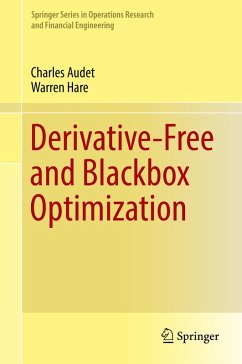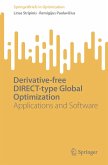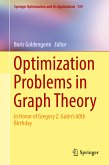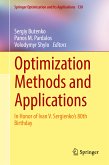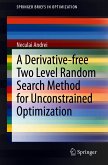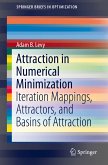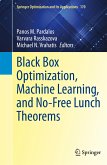The book is split into 5 parts and is designed to be modular; any individual part depends only on the material in Part I. Part I of the book discusses what is meant by Derivative-Free and Blackbox Optimization, provides background material, and early basics while Part II focuses on heuristic methods (Genetic Algorithms and Nelder-Mead). Part III presents direct search methods (Generalized Pattern Search and Mesh Adaptive Direct Search) and Part IV focuses on model-based methods (Simplex Gradient and Trust Region). Part V discusses dealing with constraints, using surrogates, and bi-objective optimization.
End of chapter exercises are included throughout as well as 15 end of chapter projects and over 40 figures. Benchmarking techniques are also presented in the appendix.
Dieser Download kann aus rechtlichen Gründen nur mit Rechnungsadresse in A, B, BG, CY, CZ, D, DK, EW, E, FIN, F, GR, HR, H, IRL, I, LT, L, LR, M, NL, PL, P, R, S, SLO, SK ausgeliefert werden.
"This book targets two audiences: individuals interested in understanding derivative-free optimization (DFO) and blackbox optimization and practitioners who have to solve real-world problems that cannot be approached by traditional gradient-based methods. ... The book is written in a clear style with sufficient details, examples and proofs of theoretical results. The authors pay equalattention to careful theoretical development and analysis of the methods, and to practical details of the algorithms." (Olga Brezhneva, Mathematical Reviews, October, 2018)
"The authors present a comprehensive textbook being an introduction to blackbox and derivative- free optimization. ... The book is for sure a necessary position for students of mathematics, IT or engineering that would like to explore the subject of blackbox and derivative-free optimization. Also the researchers in the area of optimization could treat it as an introductory reading. Finally, the book would be also a good choice for practitionners dealing with such kind of problems." (Marcin Anholcer, zbMATH 1391.90001, 2018)

